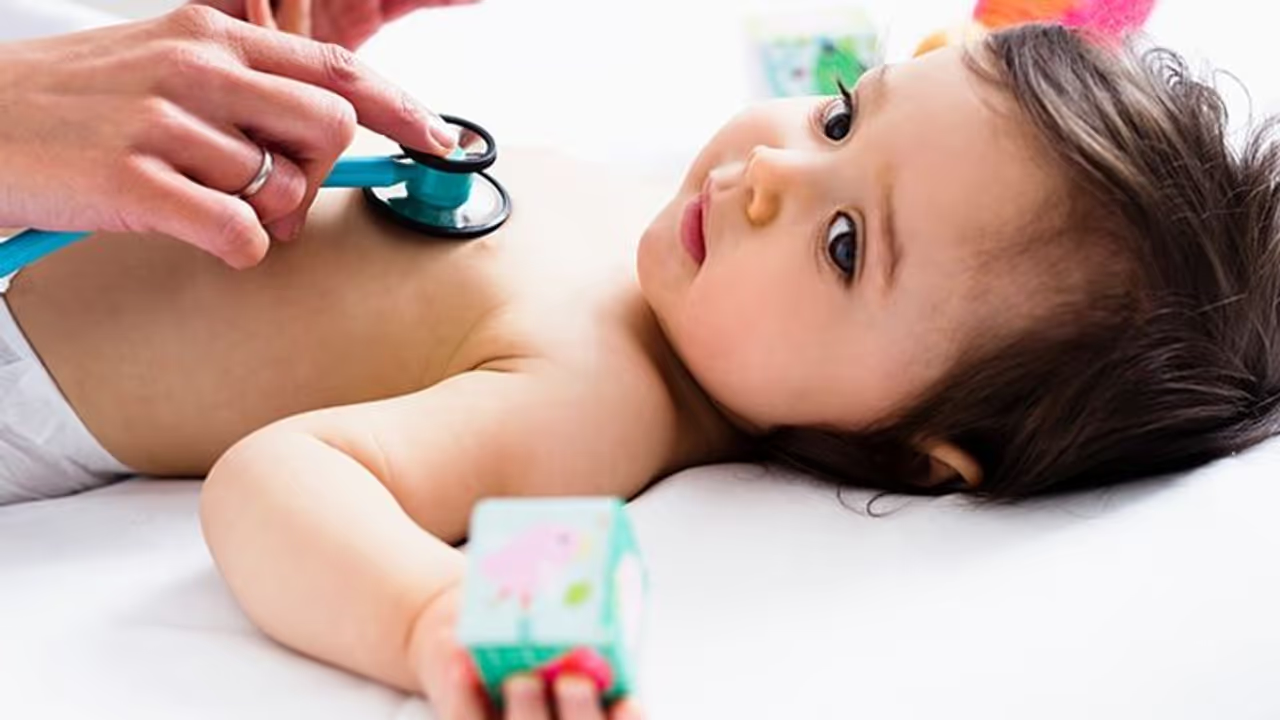Babies born with Ventricular Septal Defect (VSD) usually have feeding issues, sweat a lot during feeds, and are more irritable than normal babies. Read more

Ventricular Septal Defect (VSD), commonly referred to as a Hole in the Heart, is one of the most common congenital heart problems (present from birth). Babies born with VSD usually have feeding issues, sweat a lot during feeds, and are more irritable than normal babies.
They additionally have fast breathing and indrawing ribs. Most importantly, they do not put on weight. Thus, an infant showing these symptoms must be evaluated by a Paediatrician or a Paediatric Cardiologist at the earliest.
Also Read: World Heart Day 2022: 4 daily habits which are high-risk factors for Heart Disease
Early Diagnosis and Treatment of Ventricular Septal Defect is Essential
VSD or hole in the heart is a treatable heart problem with excellent long-term outcomes for the child. This problem must be diagnosed and operated on early in life as that the lung pressure can become elevated if the VSD is large. It can be done either by surgery or by a device in the cardiac catheterization laboratory, depending on the child’s age, weight, size of the VSD, lung pressure, and other factors assessed by the echocardiogram (heart scan).
If the VSD is not closed at the appropriate time, the elevated pressure in the lungs can make the surgery difficult and the child may become inoperable. Hence, closure of the VSD in an infant at the appropriate time is recommended based on available evidence. A few medications are prescribed after the procedure which is usually continued for a month.
Also Read: World Heart Day 2022: Are women less prone to heart attacks?
Caring for Infants Born with Ventricular Septal Defect:
Once an infant is diagnosed with VSD, medications for the heart condition are suggested by a paediatric cardiologist that should be followed properly. Care should be taken to avoid respiratory (lung-related) infections. Avoiding crowded areas and social gatherings are suggested. If any family member is suffering from any infection, better to avoid contact with the child. If the mother has a respiratory infection, she should wear a mask when breastfeeding the baby and wash her hands frequently to prevent passing on the infection to her little one.
Infants born with CHD (congenital heart disease) should be immunized as per the recommended schedule. It is very important to give them vaccines used to prevent pneumonia and other airborne infections. The annual flu vaccination is a must.
Also Read: World Heart Day 2022: Improve your heart health by having these foods
Common cough and cold-causing viruses can cause these infants life-threatening lung infections (pneumonia).
If the baby is showing any early signs of infection like cough, cold, poor feeding, vomiting, fever, or excessive crying, she/he should be immediately seen by a Paediatrician. Delay in seeking medical attention can lead to life-threatening conditions. However, if the baby has undergone surgery, vaccination can be continued as per schedule after 6 weeks from the time of the procedure.
In present-day practice, VSD is a condition that is completely treatable with normal life and longevity for the child. Babies with VSD do not require any activity restrictions if their procedure of VSD closure is done at the ideal time. They can be as normal as any other child of their age.
(This article is authored by Dr. Kavya Mallikarjun, Consultant – Paediatric Cardiology, Manipal Hospital Old Airport Road.)
